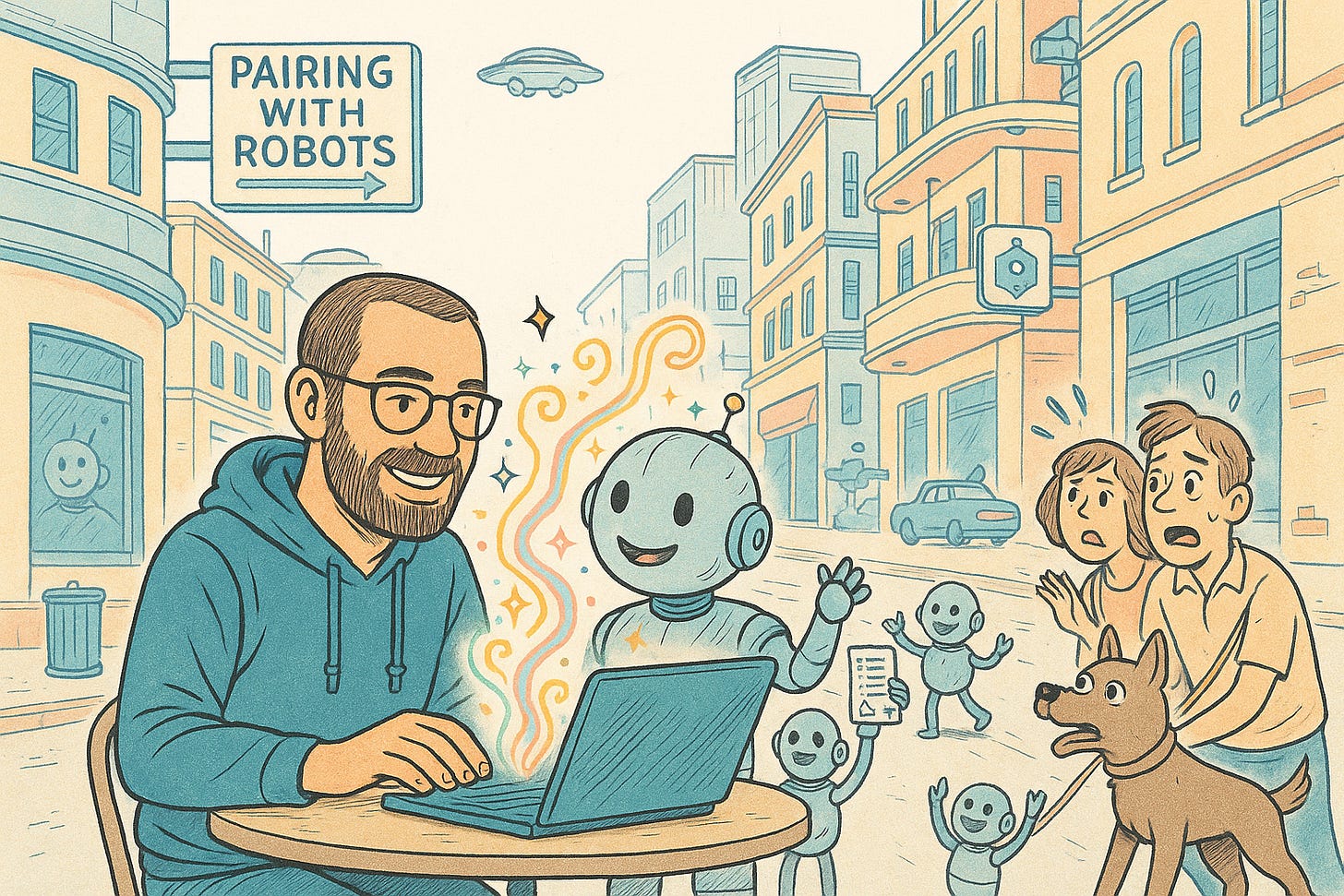The Problem with AI Coding
How I learned to stop worrying and collaborate with robots
I've been in the industry for well over two decades. When AI coding tools first came out, I was skeptical. "This is neat, but only very situationally useful." Over the years that shifted to "basically a better Google." But when I saw blog posts and AI CEOs talking about one-shot prompts building entire applications? I wasn't buying it.
I tried the agents and was not impressed. I'd prompt for something, it would write a whole lot of nonsense that I then had to clean up. My experience didn't match the hype.
About 3 months ago, something shifted.
I asked Claude Code to handle a refactoring task—pretty wide in scope but conceptually simple. The kind of tedious work that eats a day and a half of mindless effort. You know the type.
It worked on it for about 30 minutes, then told me it was done.
I checked the code expecting to find garbage. But it was good. Really good. About as good as I could have done myself, maybe better in places. That's when I realized I'd been thinking about this all wrong.
Fast forward to now. Engineering productivity is notoriously hard to quantify, but I feel comfortable saying I'm writing code about 5x faster on average. That's probably conservative. But the speed isn't even the most interesting part.
What I didn't expect:
My code has gotten cleaner and more maintainable
I actually plan more now, but it takes less time and effort
I can understand new codebases in days instead of weeks
Despite thinking harder during work, I end the day with more energy
The thing that really gets me is that last point. I'm acquiring new technical skills faster than I have in years. It feels like being a junior again, but with senior judgment. It's honestly energizing.
The Three Camps
When I'm reading blogs or on Reddit, I see three camps forming around AI coding. Two of them are huge. One is small, but getting bigger. The goal of this blog is to accelerate that.
The first camp are the Skeptics. Most good programmers are still here, though I think their skepticism is starting to shake. The Skeptics never got past that first experience of generating absolute trash. Based on that, they see two possible futures: either this bubble bursts and it all goes away, or these tools get pushed on juniors who pump out mountains of garbage with stupid names and comments on every other line, never actually learning to code. I think the bubble bursting is hard to justify anytime soon. The dystopian future though? That's likely already happening at a lot of shops.
The second camp is the Vibe Coders. These are the people talking about the third app they just launched pulling in over 1k MRR and they don't know anything about programming. They share tips like "you should ask AI to break up files over 7000 lines, it'll help with token use" or "always maintain multiple backups throughout the day just in case AI goes crazy," while arguing with anyone who mentions version control. These people have clear success, but when viewed from a distance, they just reinforce the Skeptics' worst fears.
Finally there's the third camp: the Professional Developers. They're sharing the message I'm sharing—AI is not a code generator, it's a collaborator. Building out a workflow is a skill you need to work on, but the better you get, the more everything clicks. You can use agents to generate high quality code and maintain standards you could only dream of before, while achieving spectacular velocity.
The problem is it's just a few voices out there. Every once in a while I'll hear someone try to share these insights, and most people don't get it. Those posts usually aren't comprehensive either—they'll touch on a few important things, but it's not enough to set people up for success.
Where We Go From Here
This is why I started this blog. I think we're at an inflection point, and the conversations I'm seeing online aren't helping people make the leap from frustrated to productive.
I'll be writing about what I've learned—both the mindset shifts and the concrete practices that actually work. Because it turns out, changing how you think about AI is just as important as changing how you use it.
Some of this stuff seems obvious in retrospect. Some of it completely surprised me. But it's what made the difference between fighting with AI and actually enjoying this new way of working.
I don't have all the answers—nobody does yet. We're all figuring this out together. But I've found some things that work, and I've seen them work for others too.
The tools are good enough now. What matters is how we use them. And I'm excited to explore that with you

